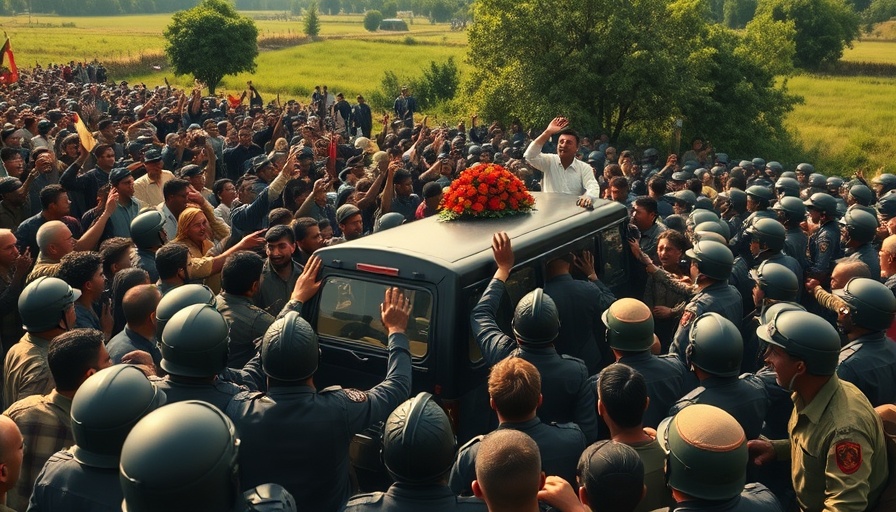
A Crisis on the Streets: Chaos at Homa Bay
In the heart of Homa Bay County, Kenya, unrest erupted late last week culminating in protestors clashing violently with police and igniting a police station. These incidents stem from the death of Albert Omundi Udang, a teacher and political blogger who was in police custody. Arrested on allegations of cyber harassment, Udang's fate has turned a grieving procession into a full-blown uprising against systemic police brutality, stirring rage and despair among the populace.
In 'Homa Bay Chaos: Mourners Protest Against Police Brutality Over Teacher's Death', the shocking protests reveal the public's ongoing battle against police misconduct and the urgent need for accountability.
The Backdrop of Anger
To fully understand these protests, one must recognize the historical context of discontent brewing in Kenya. Economic hardships and fears regarding government overreach have already set the stage for social upheaval. Many Kenyans believe their voices are consistently ignored by a government that opts for heavy-handedness instead of dialogue. The tragic demise of Udang in police custody has reignited these grievances, a symbol of the ongoing struggle against systemic injustices and the erosion of human rights.
Why Is This Happening? A Demand for Accountability
Dr. Victor O'High, a global affairs analyst, points out the government's floundering response to public discontent, identifying it as a critical factor in the escalation of violence. Alarmingly, when citizens seek to express their dissatisfaction peacefully, they are often met with allegations of terrorism—a narrative that further fuels frustration. This mischaracterization distracts from the real issues, making it more difficult to hold government and law enforcement accountable.
Comparative Analysis: Lessons from Nigeria
Drawing parallels with Nigeria, where public protests against oppressive taxation met with some government dialogue, Dr. O'High argues that respecting citizens’ rights is paramount in any democracy. The Nigerian government's willingness to listen and negotiate has helped prevent conflict, unlike the current Kenyan administration. Comparatively, Kenya's rigid stance only amplifies discord. This indicates that open communication channels can potentially mitigate unrest.
The Role of Media and Technology in Mobilization
We exist in an age where social media and citizen journalism can spread news rapidly. The protestors in Homa Bay are not solely reacting to Udang's death but are responding collectively to a myriad of frayed ties with authority. Videos and social media posts showcasing police brutality have galvanized citizens. They are now aware of their collective power, a sentiment that echoes across continent as seen in recent protests for democracy in various African nations.
Pivotal Questions Moving Forward: Will the Government Change?
The pressing question remains: Will the Kenyan government take actionable steps to address the rampant police brutality and engage in reform? Dr. O'High emphasizes that without a sincere apology and acknowledgment of failures, the President’s tenure may be irreparably jeopardized. The public is no longer willing to accept half-measures; they demand reform and accountability. As unrest escalates, the situation grows increasingly dire—forcing Kenyans and their government to confront not only the repercussions of recent violence but their long-term stability.
Conclusion: The Path Forward for Kenya
The events unfolding in Homa Bay reflect deep-seated issues within Kenyan society. While it is easy to view these protests as isolated incidents, they reveal a pressing need for systemic change. The public's desire for respect, accountability, and dialogue should not be a threat to authority; rather, it should be received as an opportunity to build a more just society. Kenyans, like peoples across the African continent, deserve a government that listens and acts in the interest of their citizens.
As we watch these protests unfold, it serves as a crucial reminder that change is driven by those who dare to take a stand—regardless of the challenges they face. Moving forward, it remains vital to engage in constructive conversations about human rights and governance as we collectively strive for a more equitable future for all.
 Add Row
Add Row  Add
Add 


Write A Comment